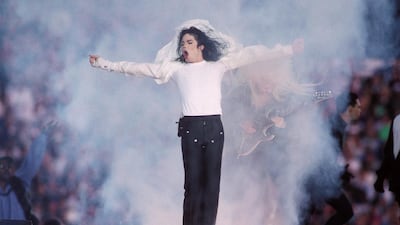Madonna, The Rolling Stones, Prince, Paul McCartney, Beyoncé – the list of musical superstars who have been called on to headline the half-time show at the Super Bowl reads like a who’s who of popular culture from the past six decades.
These days the musical spectacle is arguably as anticipated as the game itself – at last year’s Super Bowl 50, domestic TV viewing figures peaked at 115 million during Coldplay’s half-time performance. It’s a figure Lady Gaga will be hoping to rival when she performs at the Super Bowl on February 5.
In these days of streaming and music-on-demand, it is mind-boggling how a performance lasting little more than 10 minutes can generate such an audience – especially when the technical pressures mean it is often mimed rather than sung live. Part of this is fuelled by a reputation for controversy, from Janet Jackson’s infamous “wardrobe malfunction” in 2004 to Beyoncé’s Black Panthers tribute last year.
While the National Football League’s season-ending showdown has been established as a sporting institution for more than five decades, the half-time show is only half that age.
Read more: Where to watch Super Bowl LI in Dubai and Abu Dhabi
The event as we know it now began in 1993 with Michael Jackson – then the biggest star on the planet – blitzing through Billie Jean and Black or White to one of the highest TV audiences ever recorded.
Before this, half-time was a forgettable blur of flag-spinning marching bands and a few patchy, themed tributes to Hollywood, Motown, Duke Ellington and the Caribbean.
There was a hint of the potential for star power to transform the occasion when New Kids on the Block performed in 1991, followed by Gloria Estefan a year later. But it was the “King of Pop” who really changed the game, although organisers were slow to build on his success.
After the missteps of a Rockin’ Country Sunday theme in 1994 – “starring” Tanya Tucker, Clint Black, Travis Tritt and The Judds – and a thinly-veiled Disneyland advert a year later, things finally shifted up a gear in 1996, when Diana Ross performed a medley of hits before departing by helicopter. Still producers failed to capitalise on this, with patchy ensemble shows the order of the day – including a combination of James Brown, The Blues Brothers and ZZ Top in 1997, and an all-star Motown cast a year later.
In 2001, MTV presented a misjudged mash-up of Aerosmith, 'N Sync, Britney Spears, Mary J Blige and Nelly for a line-swapping rendition of Walk This Way, which can perhaps be blamed for the cluttered all-star performances that followed for much of the next decade.
A year later, Irish band U2 were given a solo show, unencumbered by “special guests”. MTV were invited back in 2004 for what would become the most notorious moment in the history of the half-time show.
Super Bowl XXXVIII’s entertainment included Jessica Simpson, P Diddy, Nelly (again), Kid Rock and Justin Timberlake but will only ever be remembered for the exposure of an intimate part of Janet Jackson’s body.
This ushered in an era of safe, predictable headliners – 2005 to 2010 was rock’s golden age of Super Bowl domination, courtesy of Paul McCartney, The Rolling Stones, Prince, Tom Petty and the Heartbreakers, Bruce Springsteen and The E Street Band, and The Who.
Prince arguably came out on top during this era, with a riotously, brazenly, shamelessly virtuosic appearance in 2007. He raced through seven songs – including covers of Queen, Jimi Hendrix and, er, Kings of Leon, with plenty of guitar solos – including the climatic closer of Purple Rain, in the rain.
The event remained largely controversy-free until 2012, when Madonna anointed the next generation of female stars, with guest appearances by Nicki Minaj and MIA. But the latter flipped a finger at the camera – and faced a US$16million (Dh58.76m) lawsuit from the NFL.
The following year, Beyoncé was joined by Kelly Rowland and Michelle Williams for a one-off Destiny’s Child reunion.
The biggest controversy in 2014 was that Red Hot Chili Peppers did not play their instruments live when they joined Bruno Mars, while the Katy Perry performance of 2015 is best remembered for an out-of-step dancing shark. Inevitably, Coldplay, were controversy-free last year.
There were unconfirmed reports in 2014 that artists might be asked to pay to perform at the Super Bowl (they traditionally do it for free). If this ever comes to pass, the half-time show will officially become what it has really been unofficially all along – a very expensive musical advert.
• The Super Bowl kicks off at 3.30am UAE time on Monday.
RGarratt@thenational.ae

